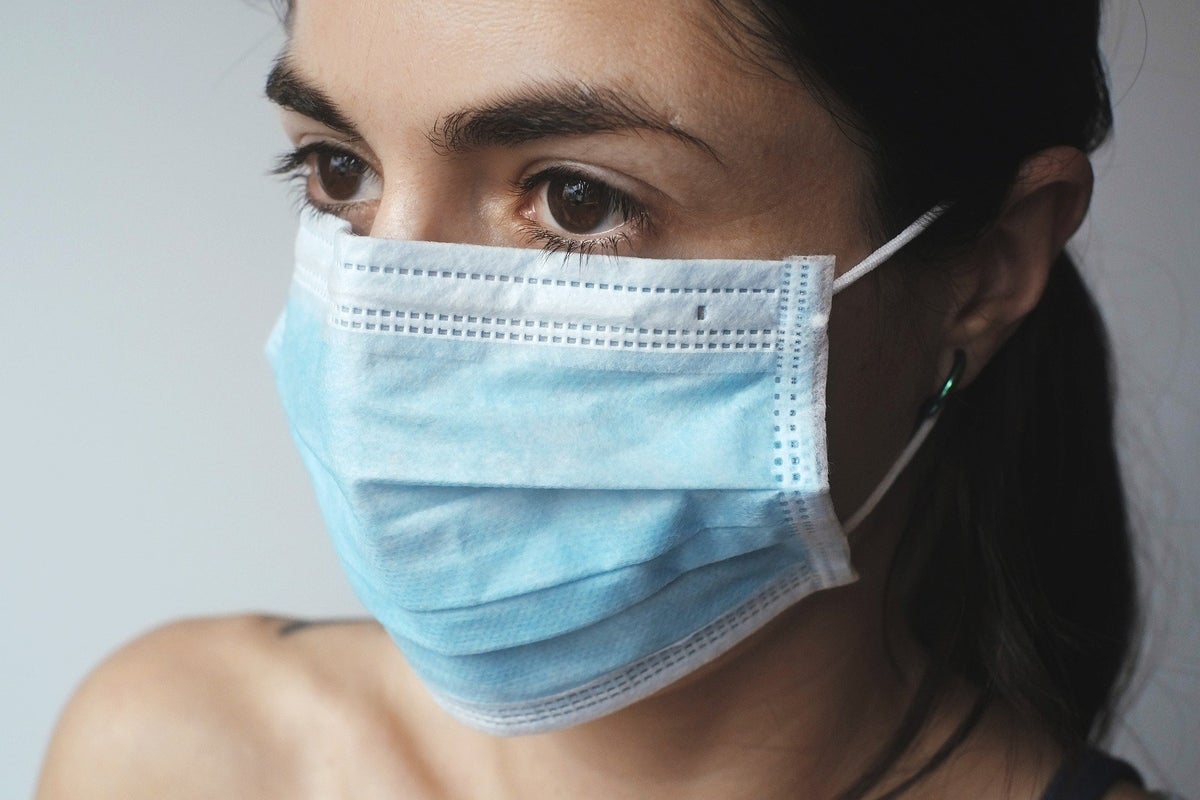[ad_1]

An increase in UK hospital admissions for sufferers with Covid-19 has prompted consultants to warn that Britain is within the midst of a fifth wave of coronavirus infections being pushed by the BA.4 and BA.5 sub-variants of Omicron.
Life has largely returned to regular for the reason that ultimate social restrictions had been eliminated on 24 February, with masks, distancing and hand sanitiser largely forgotten by the bulk because the nationwide focus switched to Partygate, the battle in Ukraine and the price of dwelling disaster.
However the nation noticed a 43 per cent spike in circumstances at first of June, seemingly attributable to individuals coming collectively to rejoice the Queen’s Platinum Jubilee over the course of a four-day weekend.
The most recent figures present 1.7 million individuals testing constructive throughout the UK, a 23 per cent enhance week-on-week (w-o-w).
Much more worryingly, hospitalisations have elevated 31 per cent w-o-w, climbing at the next price than the final Omicron revival again in March.
Healthcare chiefs have warned a brand new outbreak can have a major impression on an NHS “already on its knees” and expressed concern over the return of main reside occasions like Glastonbury, Notting Hill Carnival and the Edinburgh Competition, which might turn into super-spreader websites if precautions usually are not taken.
The final main spike in circumstances got here in December and January, pushed by Omicron, which unfold quickly world wide after being found in southern Africa in late November, as soon as extra threatening Christmas celebrations and sparking a run on booster vaccines.
Omicron proved to be much less extreme however extra transmissible than its predecessor Alpha and Delta variants, with whole day by day case numbers in England rocketing to a pandemic excessive of 218,724 on 4 January, based on the UK Well being Safety Company, earlier than steadily falling away.
Since then, solely the over-75s have been supplied second booster jabs, that means that immunity may very well be starting to wane and prompting requires a brand new booster to be supplied extra broadly this autumn.
“If we’re going to go into one other wave, possibly that’s one thing that should be reconsidered,” John Roberts, one of many main analysts on the Covid Actuaries group, has urged.
What public well being officers needed to be taught on the fly when Omicron arrived final winter was how the variant differed from the unique Covid pressure.
Whereas the World Well being Organisation estimated that signs took wherever between two days to 2 weeks to materialise in circumstances of individuals contaminated with the primary coronavirus pressure, Omicron proved to incubate a lot quicker, nearer to a few to 5 days.
“Current evaluation from the UK Well being Safety Company means that the window between an infection and infectiousness could also be shorter for the Omicron variant than the Delta variant,” UK well being secretary Sajid Javid advised the Home of Commons on 6 December.
That defined why the pressure was in a position to unfold so swiftly and efficiently, because the shortness of its incubation interval gave victims a shorter window between suspecting that they had contracted the virus and experiencing a flare-up, making it much less probably a constructive lateral move check end result can be recorded in time to warn others, enter isolation and forestall the contagion being handed on.
A shorter incubation interval “makes a virus a lot, a lot, a lot tougher to manage”, Jennifer Nuzzo, an epidemiologist on the Johns Hopkins Middle for Well being Safety, noticed in The Atlantic that very same month.
One other attribute of Omicron that made it probably tougher to detect than earlier strains was that its signs differed considerably from the three major indicators we had been conditioned to be looking out for in 2020: coughs, fever and the lack of one’s sense of style or scent.
Early warning indicators for the newer variant, against this, included a scratchy throat, decrease again ache, a runny or blocked nostril, a headache, muscle pains and fatigue, sneezing and night time sweats.
Omicron circumstances analysed in Britain discovered that sufferers usually recovered inside 5 days to every week on common, though some signs like coughing and fatigue had been more likely to linger for longer.
Shortness of breath, skilled by some victims, usually proved to final for so long as 13 days after different signs had handed.
Covid sufferers are, usually, regarded as infectious to others from round two days earlier than their first signs begin to materialise and for round 10 days after.
In the event you imagine you will have signs related to the coronavirus, the present NHS recommendation is to take a lateral move check and isolate at house for 5 days in the event you check constructive to keep away from passing it on to others (it’s best to stay away from anybody more likely to be notably weak due to their age or a pre-existing situation for 10 days).
In the event you do need to exit in public, you might be inspired to put on a face masks, keep away from crowded indoor areas and wash your arms for not less than 20 seconds.
If you’re involved about your signs or imagine they’re getting worse, you might be suggested to go to 111.nhs.uk, name 111 or name your native GP surgical procedure.
[ad_2]
Source link


